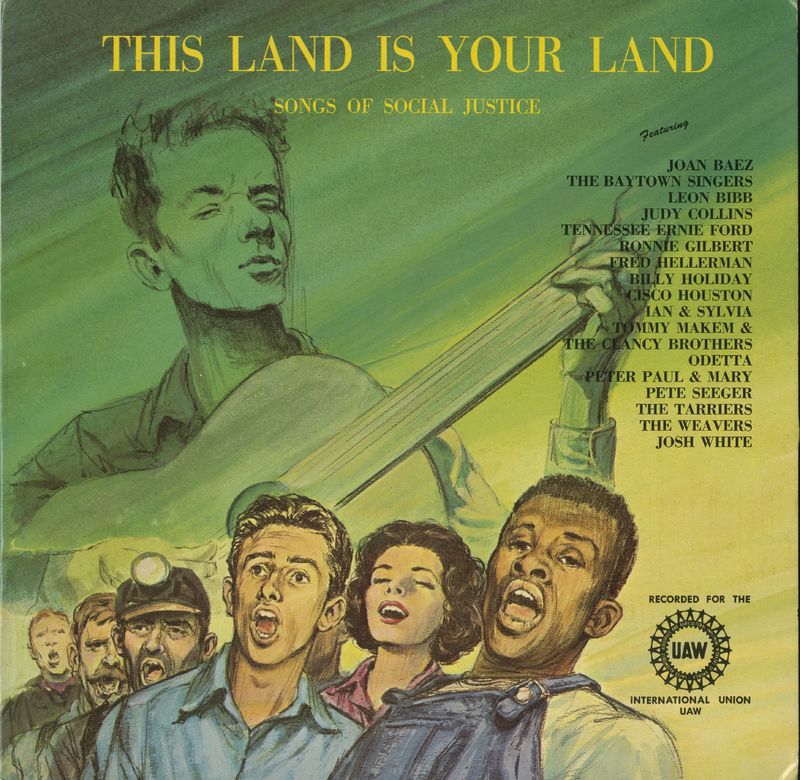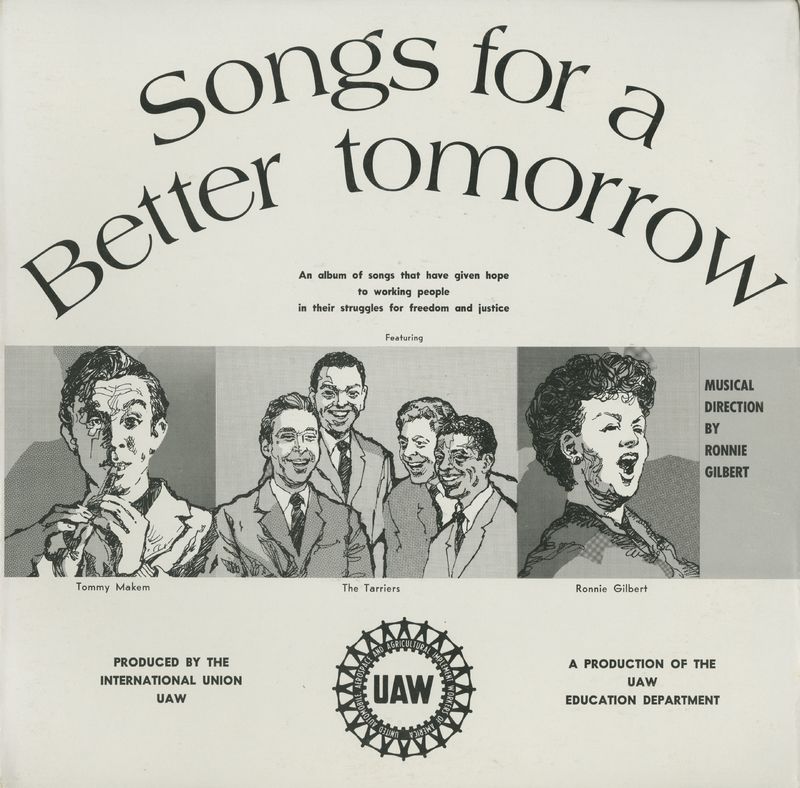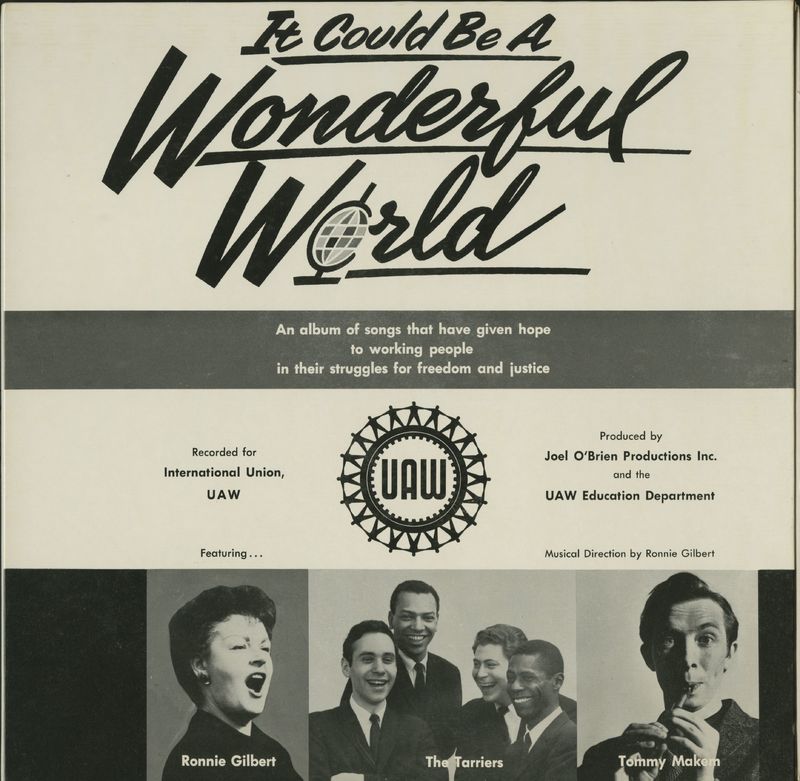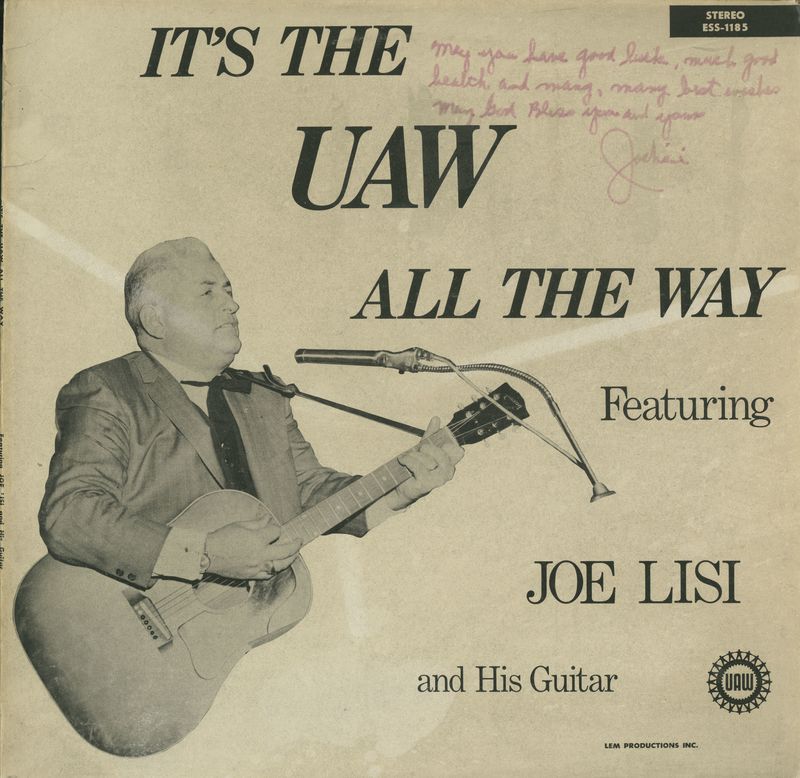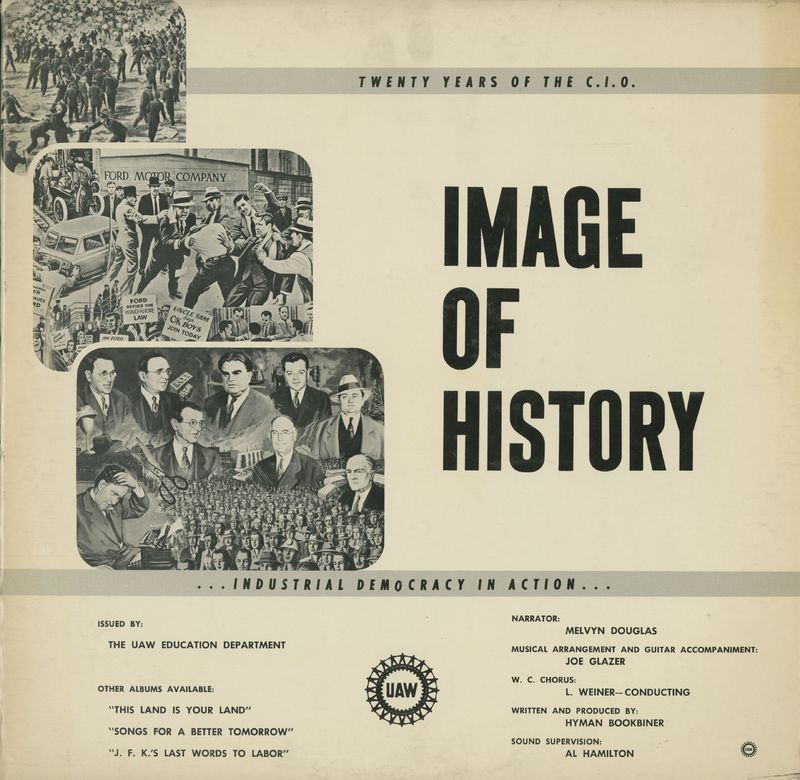Songs of the UAW
Songs of the UAW is a showcase of digitized recordings originally produced by the UAW.
The UAW recorded a series of music albums featuring local musicians and international superstars. Although not much documentation on the production of these records exists, music has been an important part of the greater labor movements since the beginning. During the Industrial Revolution, workers pushed back against the poor treatment of factory workers, unfair wages, child labor, and unsafe working conditions by creating and joining unions.[1] Music quickly became a significant means of encouraging and creating solidarity among workers. Over the years, songs have been frequently used in union strikes or to celebrate new contracts.
People have long used music to tell stories of human struggle and triumph, and the UAW was no exception. The music in the Songs of the UAW exhibit tells the story of union workers and their fight towards solidarity. It was Joe Hill (the namesake the song “Joe Hill” was written about) who said, “You can make a speech: people forget it the next day. You put the information in a leaflet: people hold onto it for a week and throw it away. But if you write a song and put that information in a song, people hear it, remember it, and sing it: it lives on.”[2]
A revival of folk music in the mid-twentieth century spread political messages, often commenting on the state of labor workers and unions. Many folk musicians earned their fame supporting union efforts at rallies and gatherings nationwide. Joe Glazer, who wrote and performed many of the songs on the UAW albums included in this exhibit, was a long-standing labor officer (Textile Worker's Union, United Rubber Workers) and advisor, though he was better known as a musician.[3]
Music played a big part in maintaining worker morale and building solidarity during major strikes. The song “Sit Down” became an immediate hit among the occupying General Motors autoworkers during the Flint Sit-down Strike of 1936-1937. Songs helped to retell stories of the strikes, celebrate victories, promote the workers’ side of the strike story, and fostered a sense of shared experience. Union music also served another very important purpose: passing time.[4]
Music has been and continues to be an important part of union and labor history in the United States and around the world. We hope the Songs of the UAW will continue to inspire workers and unions for generations to come.
References
[1] Library of Congress. “Songs of Unionization, Labor Strikes, and Child Labor.” www.loc.gov/item/ihas.200197381/#:~:text=The%20industrial%20revolution%20of%20the,uniting%20to%20improve%20their%20lot
[2] Jones, Steve. “Music and the Labor Movement.” Local802aFM, May 2008. https://www.local802afm.org/allegro/articles/music-and-the-labor-movement/
[3] Allegar, Miranda. “Folk Songs and Fellowship: The Power of Music in the Labor Movement.” Association for Diplomatic Studies and Training. https://adst.org/2020/12/folk-songs-and-fellowship-the-power-of-music-in-the-labor-movement/; "Joe Glazer: Singer, Songwriter, Activist," APWU, June 30, 2012, .https://adst.org/2020/12/folk-songs-and-fellowship-the-power-of-music-in-the-labor-movement/.
[4] Lynch, Timothy. “’Sit Down! Sit Down’”: Songs of the General Motors Strike, 1936-1937.” Michigan Historical Review vol. 22, no. 2. Fall, 1996. pp. 1-47. https://www.jstor.org/stable/20173585
Songs of the UAW and the exhibit introduction were created by Melissa Moore in April, 2024 as part of the Michael K. Wells Digital Librarianship Scholarship for Wayne State University's School of Information Science Archival Administration program. All materials can be found in the Walter P. Reuther Library, Archive of Labor and Urban Affairs and have been digitized and transcribed in part or in full for the purposes of this project. Transcripts of album sleeve text have not been edited and are direct from the source material.
